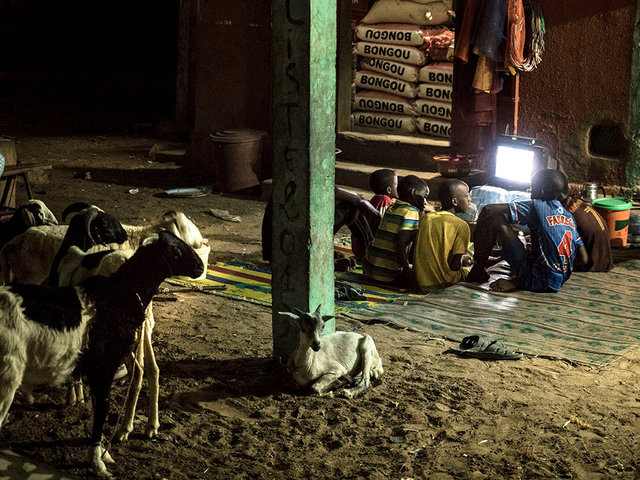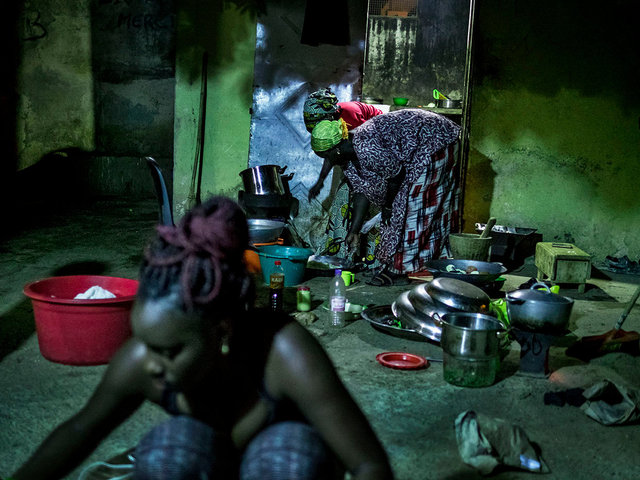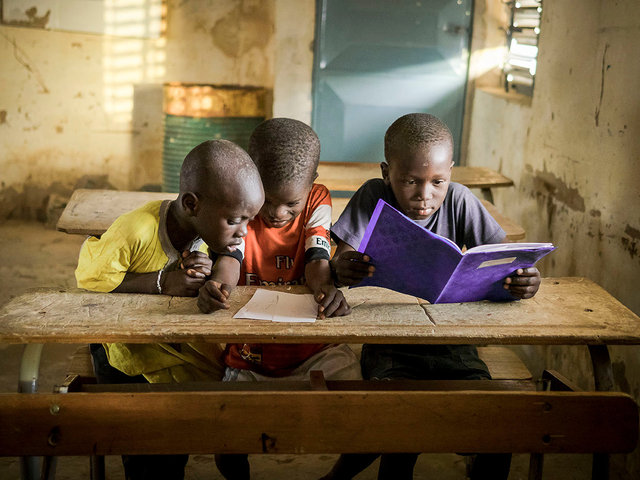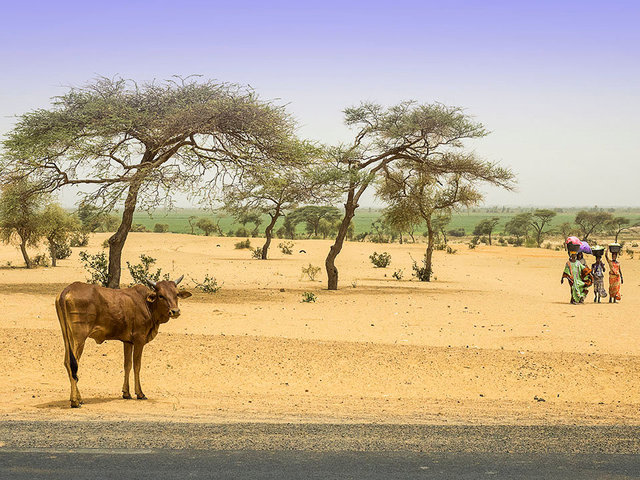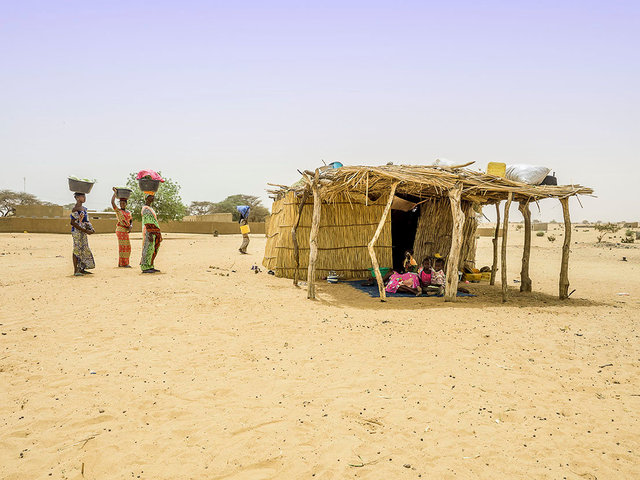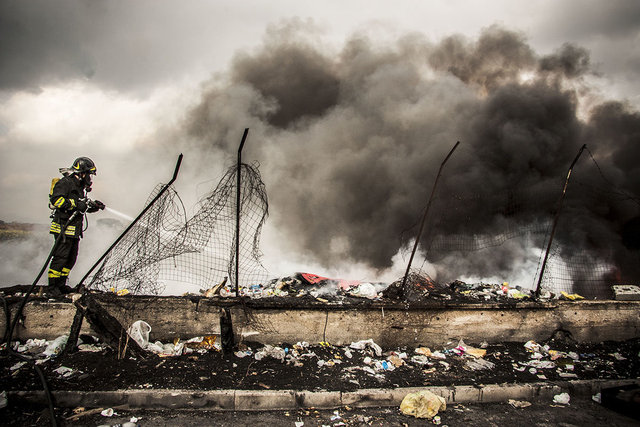
Terra dei Fuochi 1
Un vigile del fuoco impegnato a spegnere un rogo tossico ad Fragola in provincia di Napoli
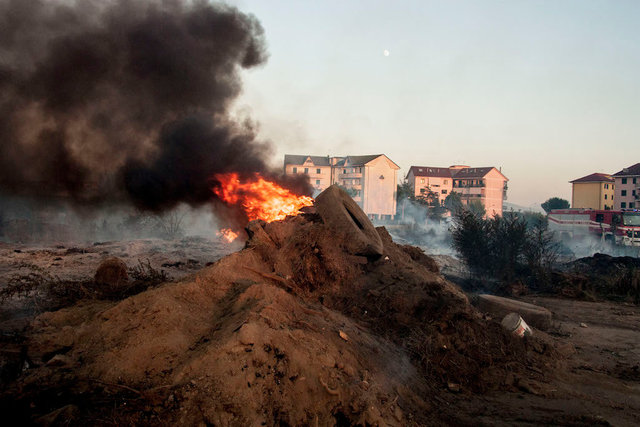
Terra dei Fuochi_2
Un rogo tossico in cui vengono bruciati rifiuti speciali nella periferia di Caivano, nel territorio dove è parroco padre Maurizio Patrociello, il prete che da anni si batte per contrastare il fenomeno della cosiddetta Terra dei Fuochi.
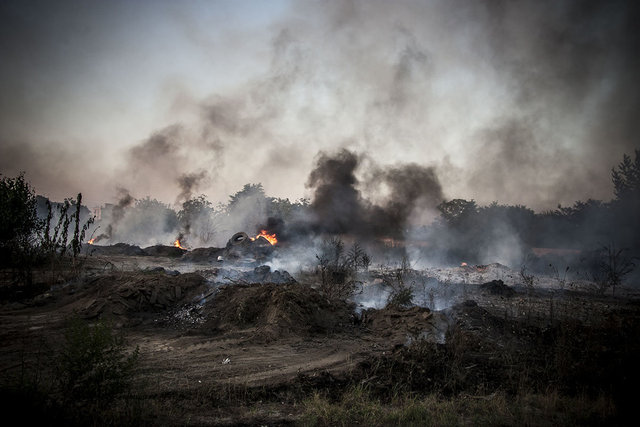
Terra dei Fuochi_3
Un rogo tossico in cui vengono bruciati rifiuti speciali nella periferia di Caivano, nel territorio dove è parroco padre Maurizio Patrociello, il prete che da anni si batte per contrastare il fenomeno della cosiddetta Terra dei Fuochi.
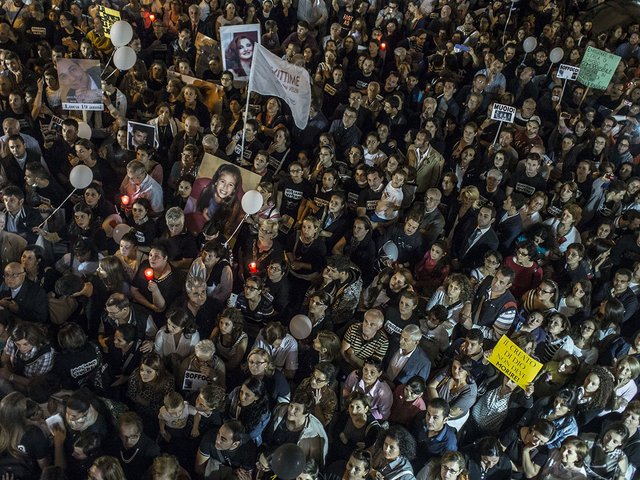
Terra dei Fuochi_5
Una delle prime manifestazioni organizzate dalla diocesi di Aversa contro il fenomeno della cosiddetta Terra dei Fuochi
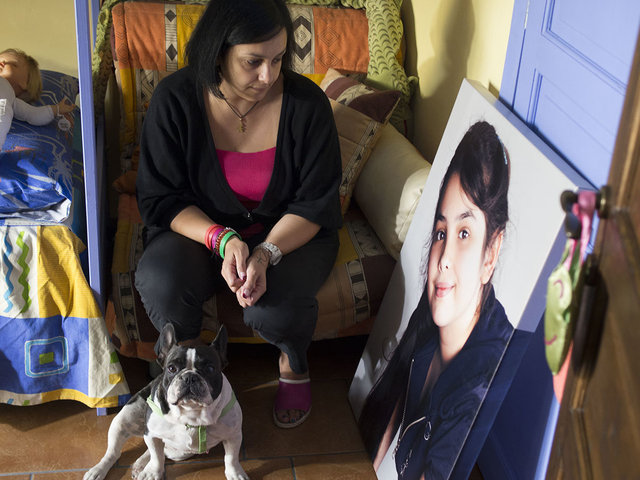
Terra dei Fuochi_7
Tina, una delle prime madri che hanno posato nelle camerate dei loro figli morti per cancro per sensibilizzare la popolazione e le autorità contro la Terra dei Fuochi.
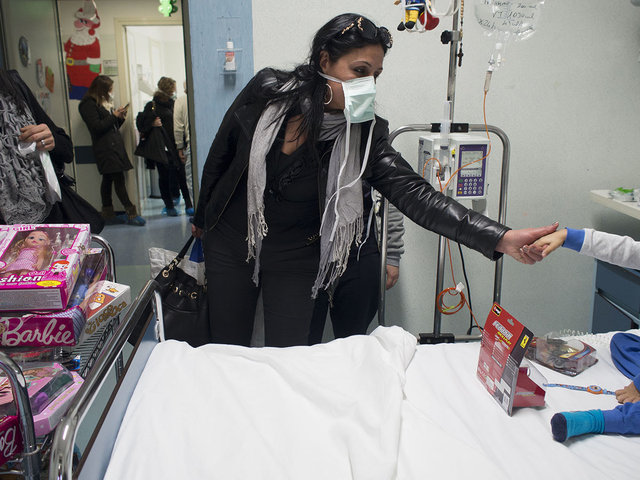
Terra dei Fuochi_8
Antonella, una mamma che ha perso il figlio a causa del cancro nella Terra dei Fuochi, sul reparto di oncologia pediatrica del Pausillipon di Napoli mentre fa visita ad altri bambini.
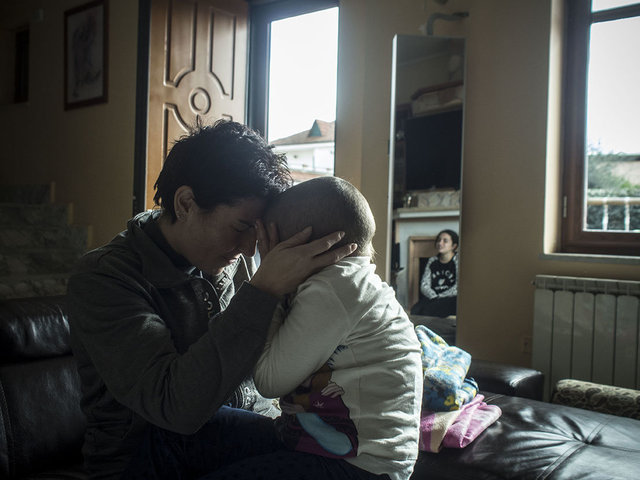
Terra dei Fuochi_9
Rita con la figlia Giada, ammalata di Leucemia nella loro casa di Giugliano, uno dei comuni del napoletano dove ci sono le discariche tossiche tra le più pericolose della cosiddetta Terra dei Fuochi.
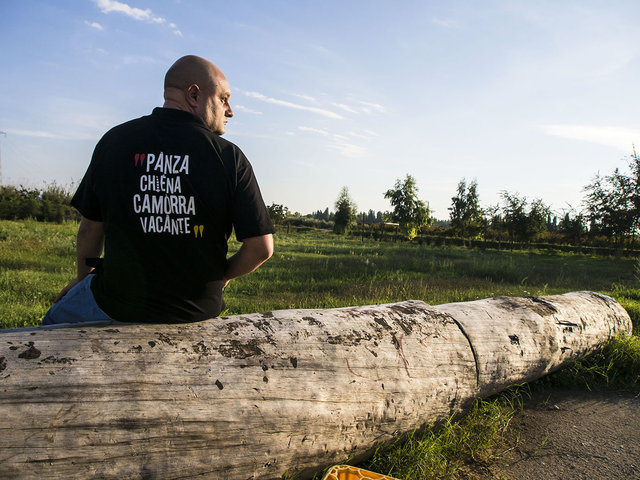
Oltre Gomorra_1
Un utente di una cooperativa sociale che lavora su beni confiscati alla camorra in provincia di Caserta dove viene praticata agricoltura sociale con ragazzi provenienti da percorsi di tossicodipendenza o con problemi di salute mentale.
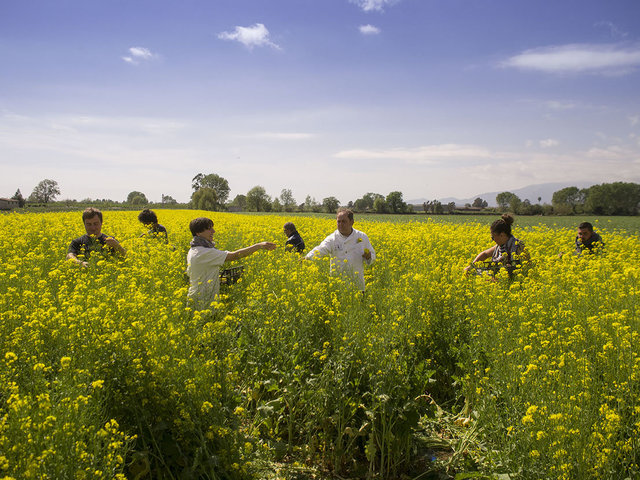
Oltre Gomorra_2
Operatori ed utenti di una cooperativa sociale che lavora su beni confiscati alla camorra a Casal di Principe.
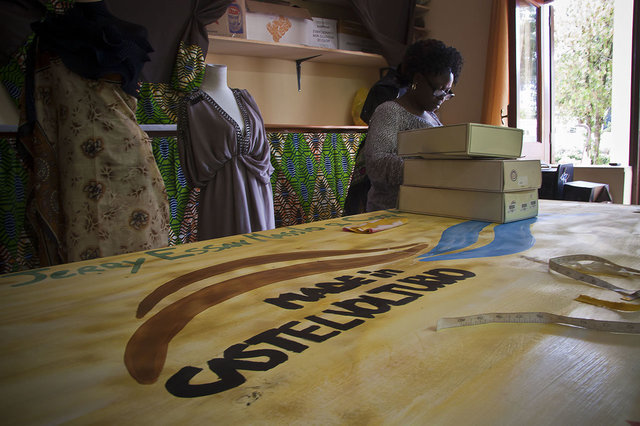
Oltre Gomorra_3
In una casa confiscata a Castelvolturno dove una cooperativa sociale ha fondato una sartoria dove lavorano ragazze africane liberate dalla tratta della prostituzione.
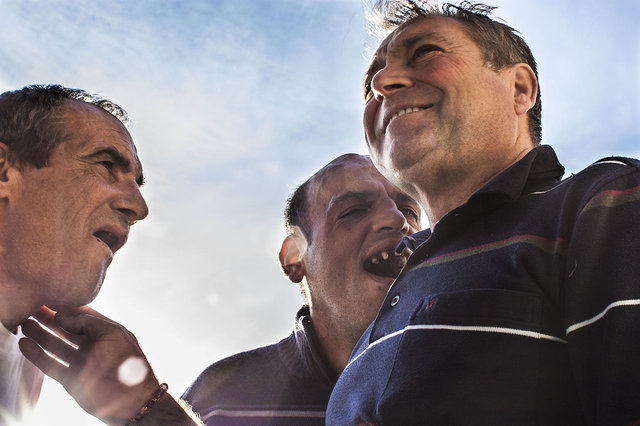
Oltre Gomorra_5
Utenti e operatori di una cooperativa sociale che opera con persone svantaggiate in un bene confiscato alla camorra a Casal di Principe
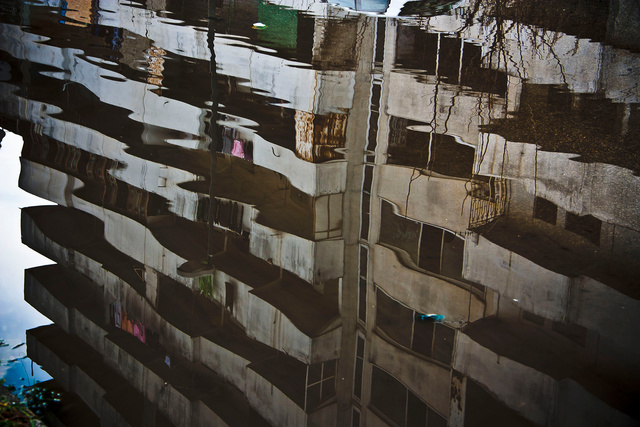
Oltre Gomorra_6
il riflesso nell'acqua di una delle cosiddette Vele di Scampia, Napoli
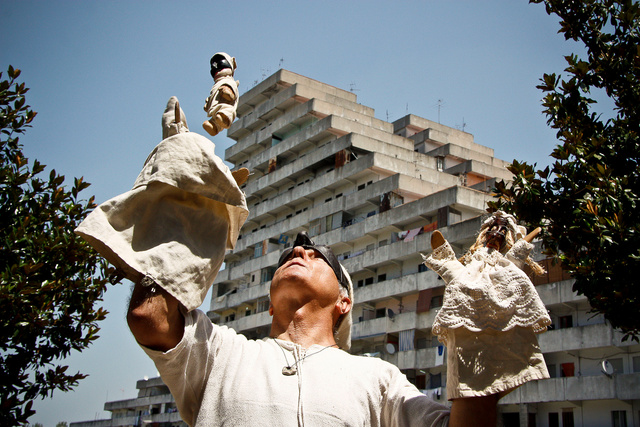
Oltre Gomorra_7
Scampia durante delle attività di un associazione che lavora con i bambini del quartiere.
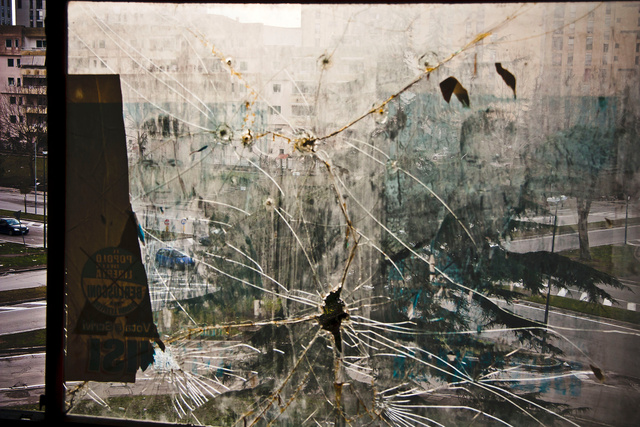
Oltre Gomorra_8
Scampia vista dalle finestre delle famose Vele.
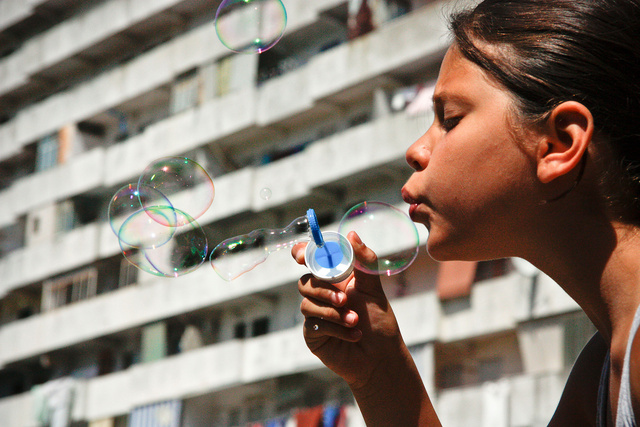
Oltre Gomorra_9
Una bambina gioca davanti alle vele di Scampia durante una festa organizzata da una delle tante associazioni presenti nel quartiere.
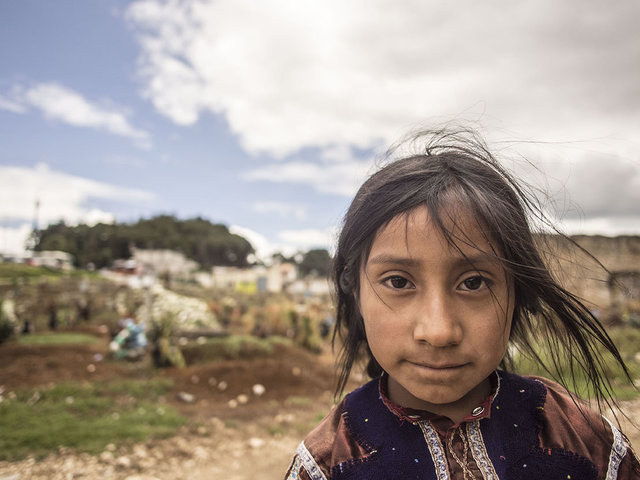
Migrar no es delito_4_Mexico
Una bambina migrante nel sud del Messico durante il suo viaggio verso gli Usa
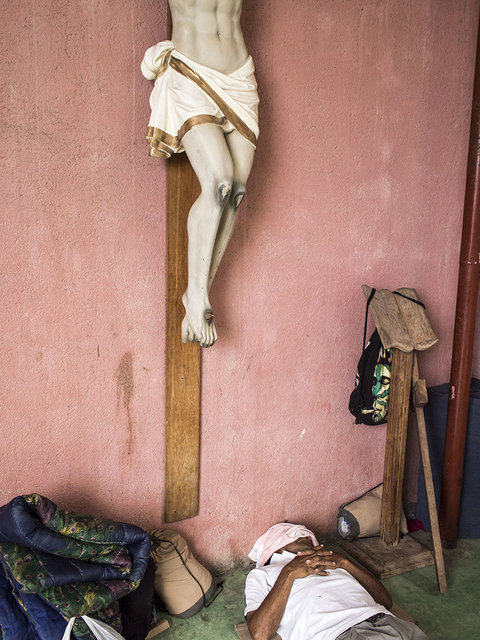
Mexico_ Migrar no es delito_2
Un migrante del centro America si riposa nella cappella della casa Hermans en el Camino, fondata da padre Alejandro Solalinde per assistere i tanti migranti che attraversano il Messico per tentare di entrare negli Usa.
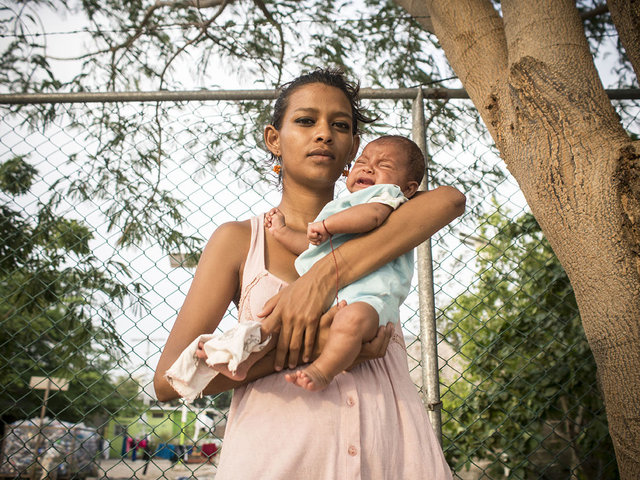
Migrar no es delito_4_Mexico
Una giovane madre migrante del centro-America ritratta nel centro "Migrar no es Delito" fondata da padre Alejandro Solalinde per assistere i tanti migranti che tentano di raggiungere gli Usa attraversando il pericolosissimo territorio messicano.
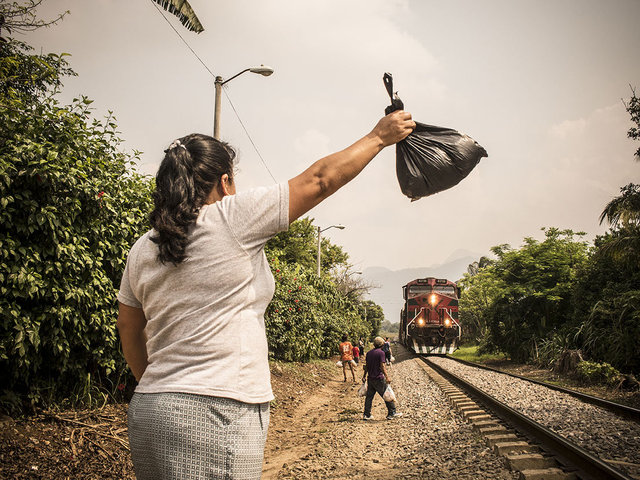
Migrar no es delito_5_Mexico
Las Patronas- Las Patronas, sono un gruppo di donne di un piccolo villaggio nello stato di Veracruz, nel centro del Messico che da 20 anni cucinano e lanciano cibo ai tantissimi migranti che attraversano il Messico sul pericoloso treno merci chiamato la Bestia.
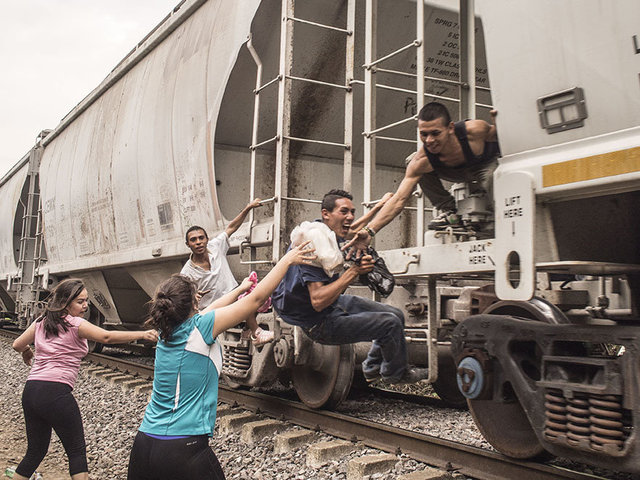
Migrar no es delito_5_Mexico
Las Patronas- Las Patronas, sono un gruppo di donne di un piccolo villaggio nello stato di Veracruz, nel centro del Messico che da 20 anni cucinano e lanciano cibo ai tantissimi migranti che attraversano il Messico sul pericoloso treno merci chiamato la Bestia.
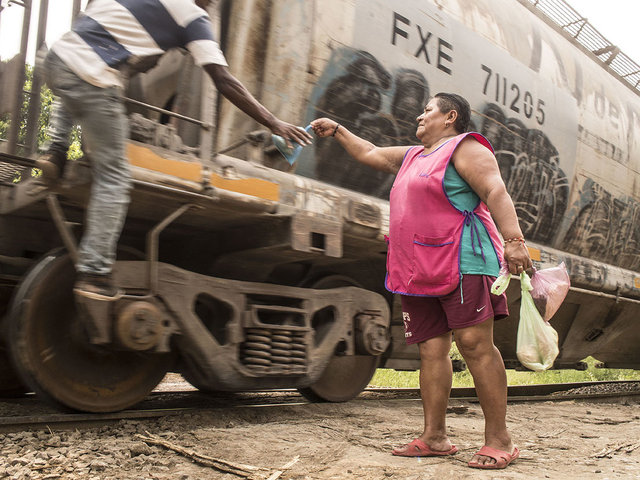
Migrar no es delito_6_Mexico
Las Patronas- Las Patronas, sono un gruppo di donne di un piccolo villaggio nello stato di Veracruz, nel centro del Messico che da 20 anni cucinano e lanciano cibo ai tantissimi migranti che attraversano il Messico sul pericoloso treno merci chiamato la Bestia.
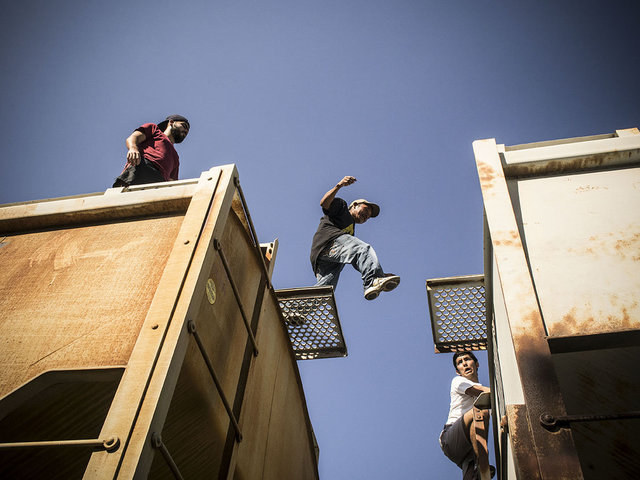
Migrar no es delito_7_Mexico
Migranti sul treno merci chiamato La Bestia, usatola migliaia per attraversare il vasto territorio messicano.
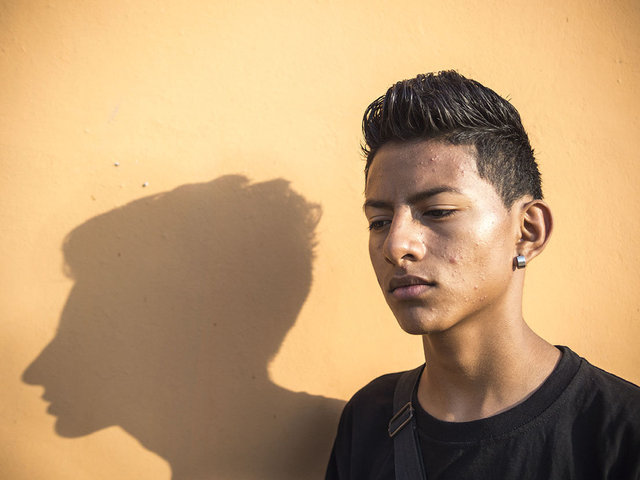
Migrar no es delito_8_Mexico
Un migrante onduregno che scappa per liberarsi dalla Mara, le mafie che hanno letteralmente preso il potere in intere città del centro-omerica durante la sua sosta nel piccolo centro fondato dalle donne di Las Patronas
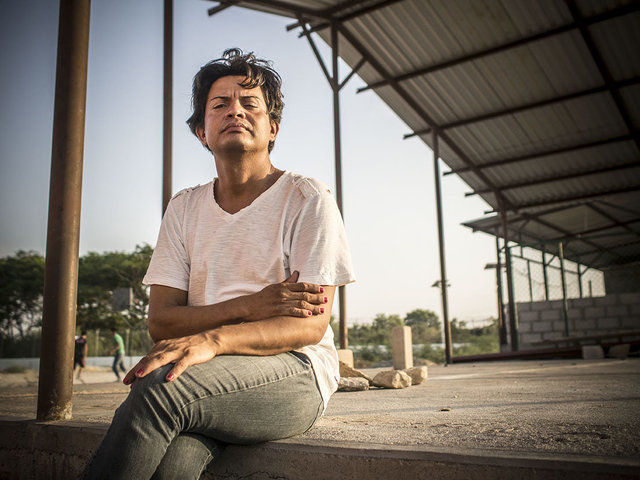
Migrar no es delito_9_Mexico
Un migrante eterosessuale che scappa dalle persecuzioni della Mara nella sua città in Honduras.
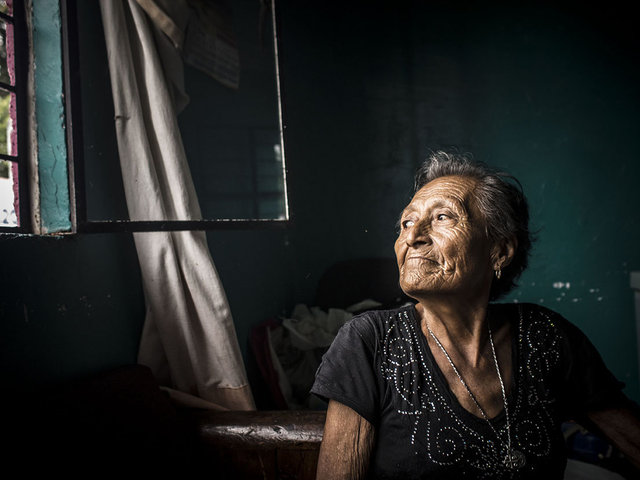
Migrar no es delito_9_Mexico
La più anziana delle donne di Las Patronas, il gruppo di donne contadine che da venti anni cucinano e lanciano cibo alle migliaia di migranti che attraversano il Messico sul treno merci chiamato "La Bestia"
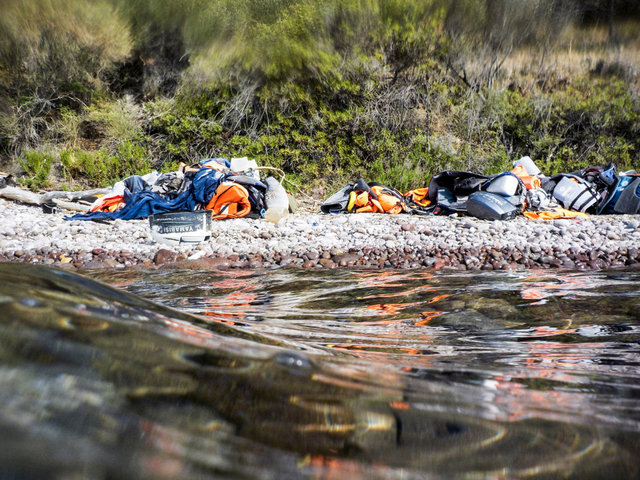
Lesbo, spiaggia di Skala Sikaminias.
Un piccolo villaggio a nord di Lesbo, a pochissimi chilometri dalle coste turche, visibili ad occhio nudo. Qui sono arrivate migliaia di imbarcazioni con i rifugiati e qui decine di migliaia di migranti hanno trovato accoglienza e aiuti dagli straordinari abitanti del villaggio.Ancora oggi, nonostante gli sbarchi siano diminuiti drasticamente in seguito all'accordo Ue Turchia, arrivano in media 5-6 imbarcazioni a settimana e sono visibili i resti delle imbarcazioni sulla costa.
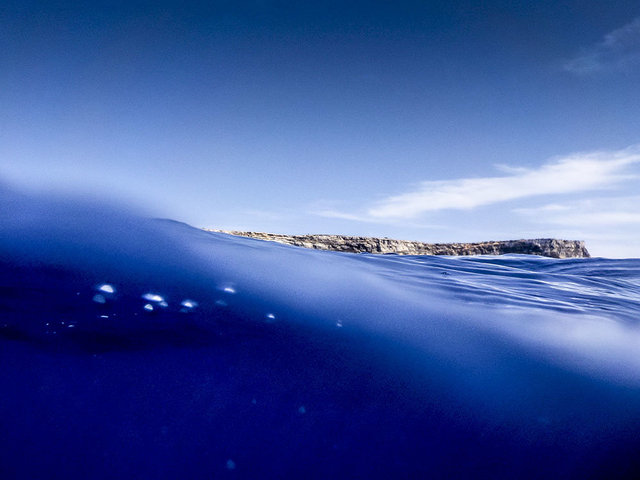
Migranti_Coi Loro Occhi- Lampedusa_1
Coi loro occhi è un progetto composto da scatti dal mare, in punti particolari dal punto di vista del fenomeno delle migrazioni del Mediterraneo.
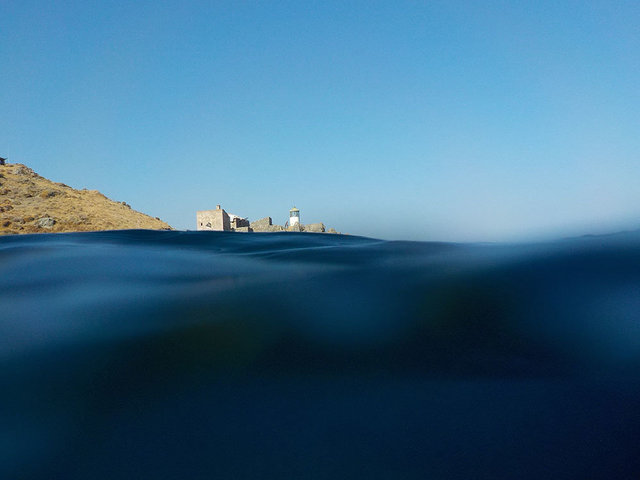
Migranti_Coi Loro Occhi- Lesbo_1
Coi loro occhi è un progetto composto da scatti dal mare, in punti particolari dal punto di vista del fenomeno delle migrazioni del Mediterraneo.
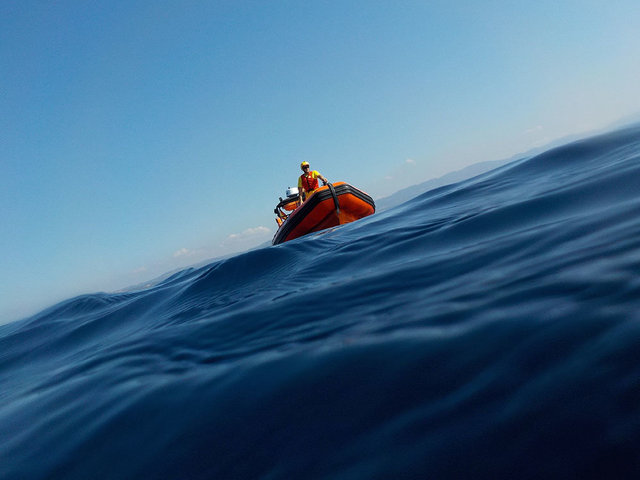
Un gommone di una ONG che opera nelle acque di Lesbo vista dal mare, dallo stesso punto di vista dei migranti che cadono in acqua.
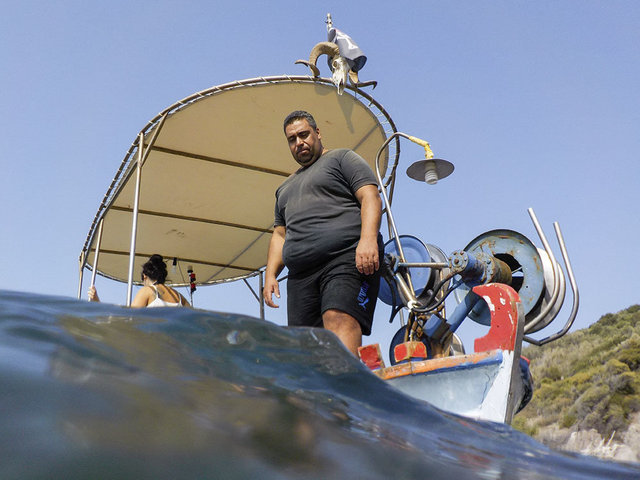
Migranti_Coi Loro Occhi- Lesbo_3
Kostas è un pescatore di lesbo che ha salvato centinaia di bambini migranti dal mare tra il 2015 e il 2016
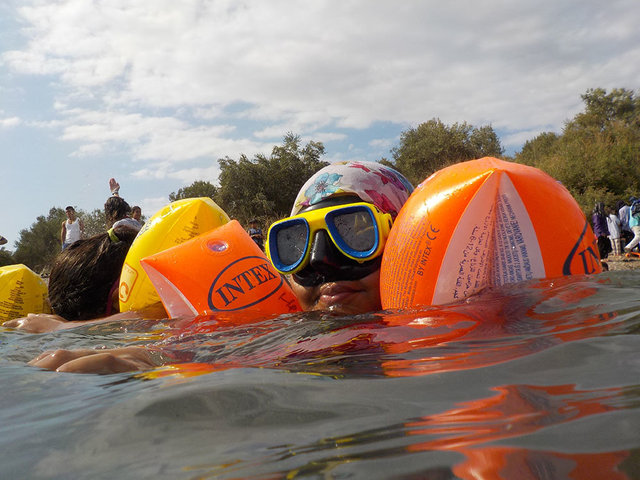
Lesbo_Lezioni di nuoto a bambini rifugiati_1
Una bambina siriana partecipa alle lezioni di nuoto organizzate da alcuni volontari del campo profughi di Kara Tepè a Lesbo.
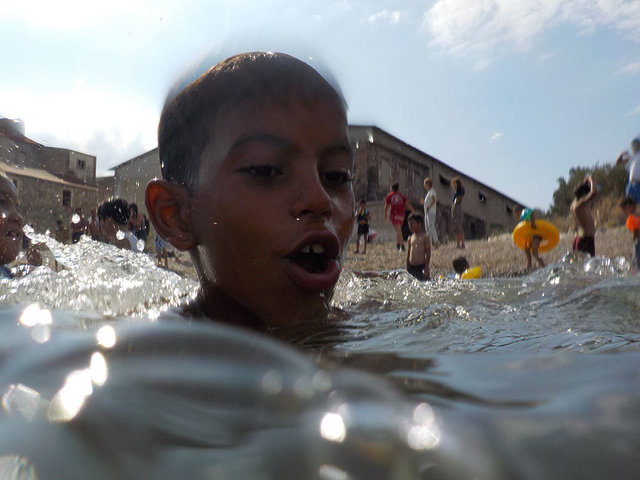
Lesbo_Lezioni di nuoto a bambini rifugiati_2
I bambini rifugiati sono tutti arrivati dal mare senza saper nuotare. Ora, grazie ai giovani volontari del campo gli viene data la possibilità di imparare a nuotare e superare il trauma del mare provocato dopo il viaggio.
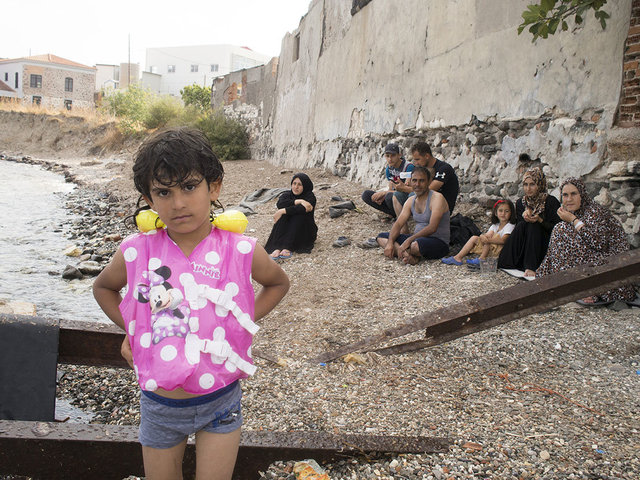
Lesbo_Lezioni di nuoto a bambini rifugiati_3
I bambini rifugiati sono tutti arrivati dal mare senza saper nuotare. Ora, grazie ai giovani volontari del campo gli viene data la possibilità di imparare a nuotare e superare il trauma del mare provocato dopo il viaggio.
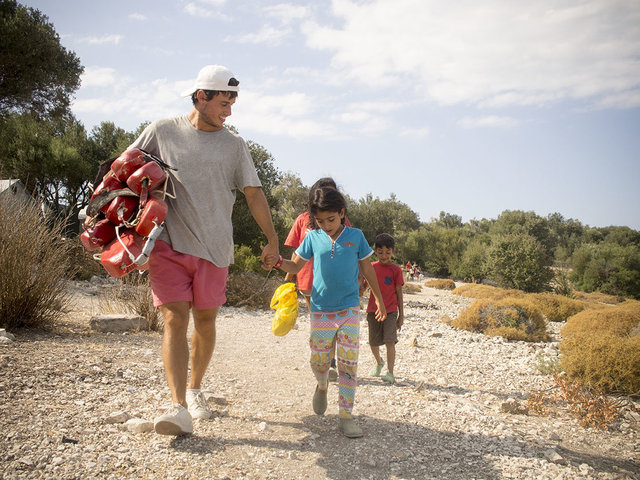
Lesbo_Lezioni di nuoto a bambini rifugiati_5
I bambini rifugiati sono tutti arrivati dal mare senza saper nuotare. Ora, grazie ai giovani volontari del campo gli viene data la possibilità di imparare a nuotare e superare il trauma del mare provocato dopo il viaggio.
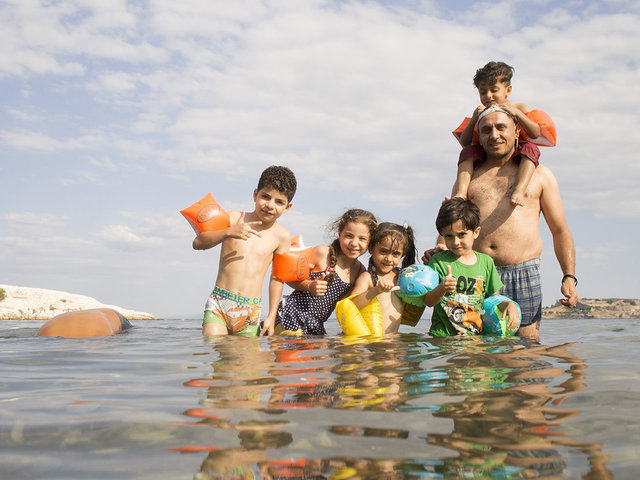
Lesbo_Lezioni di nuoto a bambini rifugiati_6
Una famiglia siriana nel campo profughi di Kara Tepè a Lesbo partecipa alle lezioni di nuoto organizzate dai volontari.
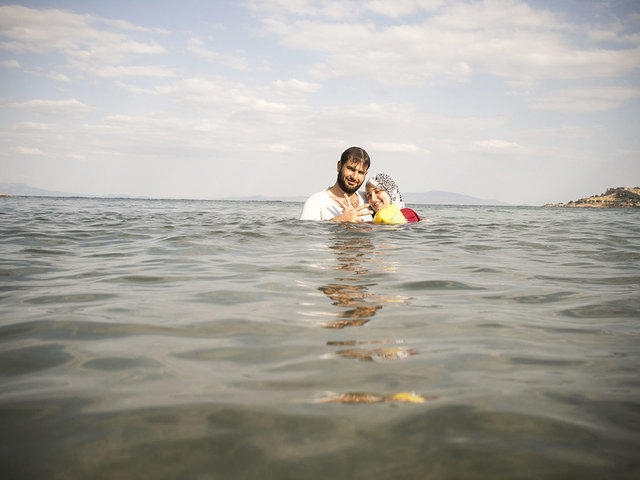
Una giovane coppia Curda partecipa alle lezioni di nuoto organizzate dal campo profughi di Kara Tepè
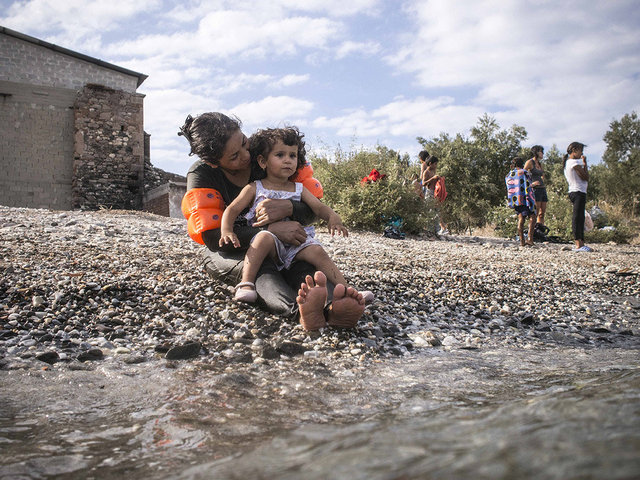
Una siriana che vive nel campo profughi di Lesbo, con la figlia durante le lezioni di nuoto organizzate dai volontari del campo.
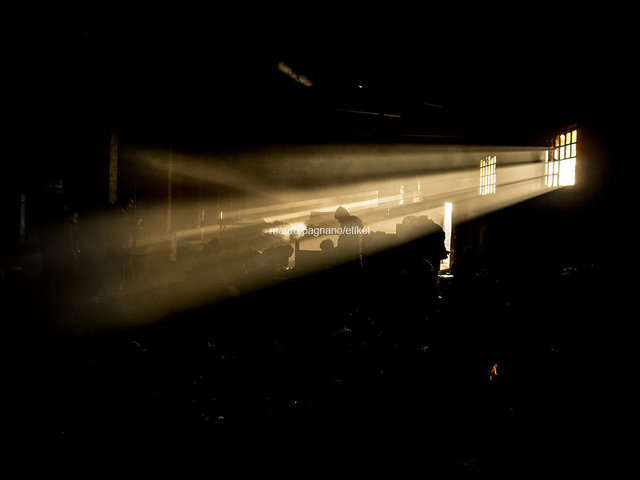
The internal of disused warehouses behind the station in Belgrade where about 1000 refugees waiting to cross in the Hungarian border and arriving in the EUAbout 1,000 refugees, mostly Afghans and Pakistanis who are trying to reach Europe, are locked for months in an irregular field behind the railway station in Belgrade. Their journey along the Balkan route has stopped for the moment, at the border between Serbia and Hungary, because of the closing of the border by the Hungarian government. Among these people, many are minors and they live in some disused warehouses in conditions devoid of human dignity. There are toilets, even chemicals, they are forced to breathe toxic smoke to warm up and cook and they receive one hot meal a day with the help of an NGO. In the meantime, many of them, even today, try to cross the border braving the presence of the hard Hungarian police with his dogs, hoping for a better life in the countries of the United Europe.
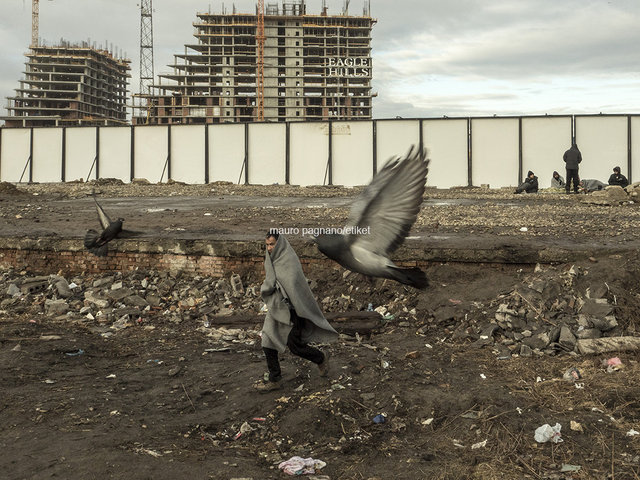
About 1,000 refugees, mostly Afghans and Pakistanis who are trying to reach Europe, are locked for months in an irregular field behind the railway station in Belgrade. Their journey along the Balkan route has stopped for the moment, at the border between Serbia and Hungary, because of the closing of the border by the Hungarian government. Among these people, many are minors and they live in some disused warehouses in conditions devoid of human dignity. There are toilets, even chemicals, they are forced to breathe toxic smoke to warm up and cook and they receive one hot meal a day with the help of an NGO. In the meantime, many of them, even today, try to cross the border braving the presence of the hard Hungarian police with his dogs, hoping for a better life in the countries of the United Europe.
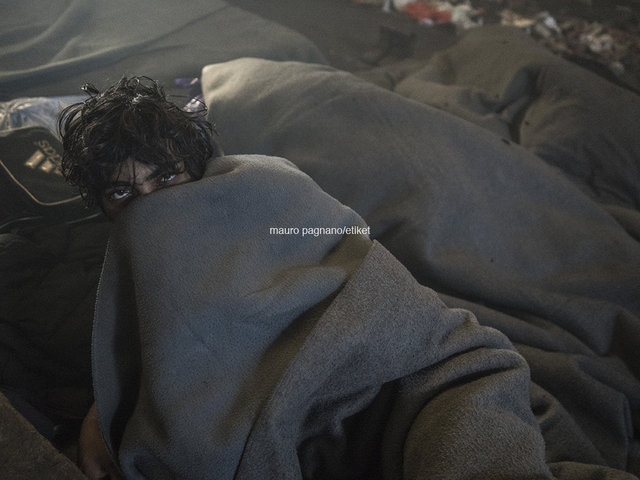
About 1,000 refugees, mostly Afghans and Pakistanis who are trying to reach Europe, are locked for months in an irregular field behind the railway station in Belgrade. Their journey along the Balkan route has stopped for the moment, at the border between Serbia and Hungary, because of the closing of the border by the Hungarian government. Among these people, many are minors and they live in some disused warehouses in conditions devoid of human dignity. There are toilets, even chemicals, they are forced to breathe toxic smoke to warm up and cook and they receive one hot meal a day with the help of an NGO. In the meantime, many of them, even today, try to cross the border braving the presence of the hard Hungarian police with his dogs, hoping for a better life in the countries of the United Europe.
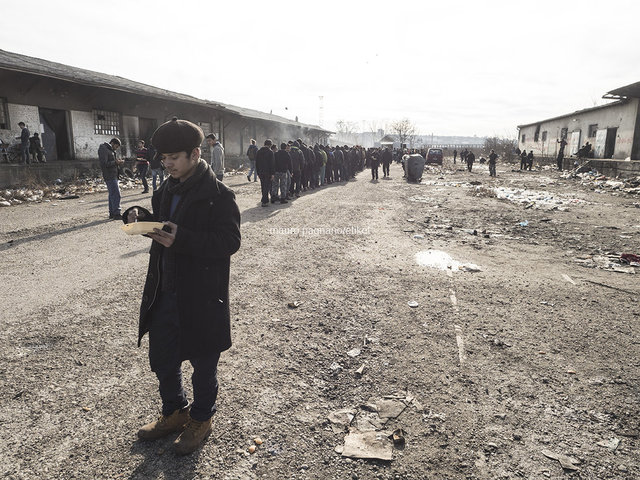
Migrants in line to receive a hot meal. The volunteers of a Non Governmental Organization called "Food for Idomeni" (already involved in the refugee crisis Idomeni in 2016) they are the only ones that are able to ensure a warm, decent meal a day for the 1,000 refugees who are living in disused warehouses behind the railway station in Belgrade.
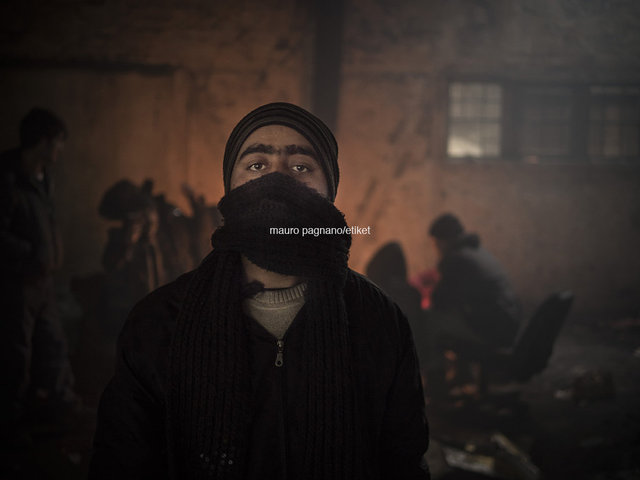
A refugee boy with mouth and nose covered to avoid inhaling the toxic fumes from the many outbreaks in abandoned warehouses behind the station in Belgrade.
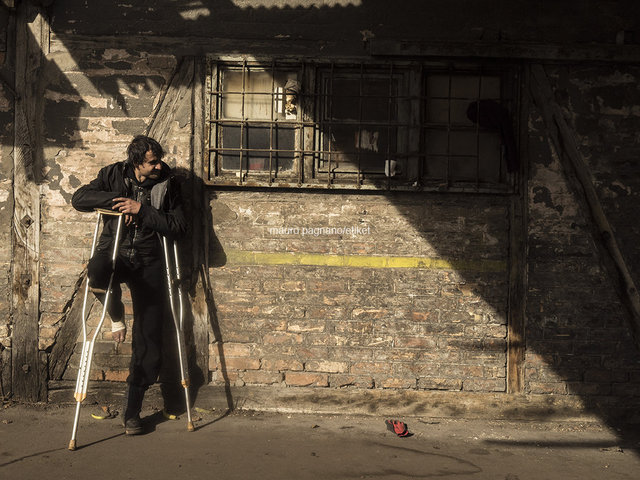
A migrant with broken leg because of football of a Hungarian police officer while attempting to cross the border.About 1,000 refugees, mostly Afghans and Pakistanis who are trying to reach Europe, are locked for months in an irregular field behind the railway station in Belgrade. Their journey along the Balkan route has stopped for the moment, at the border between Serbia and Hungary, because of the closing of the border by the Hungarian government. Among these people, many are minors and they live in some disused warehouses in conditions devoid of human dignity. There are toilets, even chemicals, they are forced to breathe toxic smoke to warm up and cook and they receive one hot meal a day with the help of an NGO. In the meantime, many of them, even today, try to cross the border braving the presence of the hard Hungarian police with his dogs, hoping for a better life in the countries of the United Europe.
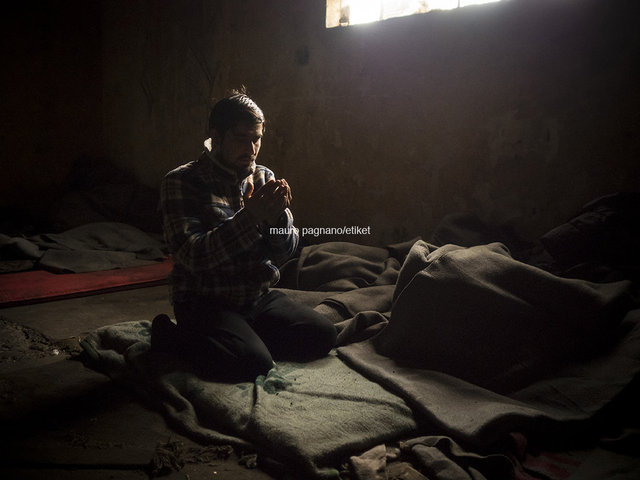
An Afghan refugee while reciting the prayer in his makeshift bed inside the shed.About 1,000 refugees, mostly Afghans and Pakistanis who are trying to reach Europe, are locked for months in an irregular field behind the railway station in Belgrade. Their journey along the Balkan route has stopped for the moment, at the border between Serbia and Hungary, because of the closing of the border by the Hungarian government. Among these people, many are minors and they live in some disused warehouses in conditions devoid of human dignity. There are toilets, even chemicals, they are forced to breathe toxic smoke to warm up and cook and they receive one hot meal a day with the help of an NGO. In the meantime, many of them, even today, try to cross the border braving the presence of the hard Hungarian police with his dogs, hoping for a better life in the countries of the United Europe.
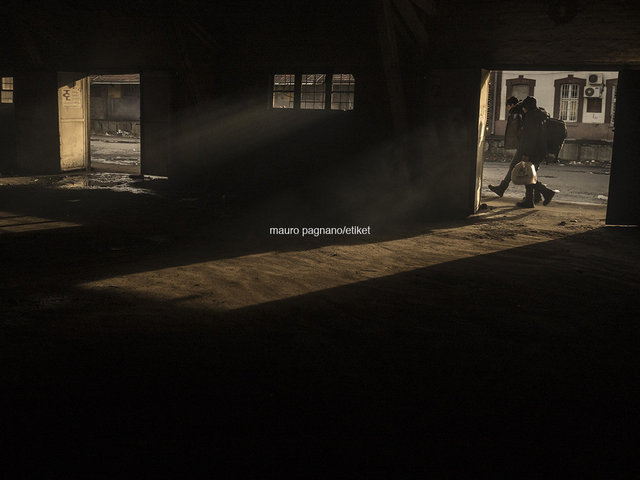
Some refugees leave the warehouses where they are living to try to reach the border between Serbia and Hungary. About 1,000 refugees, mostly Afghans and Pakistanis who are trying to reach Europe, are locked for months in an irregular field behind the railway station in Belgrade. Their journey along the Balkan route has stopped for the moment, at the border between Serbia and Hungary, because of the closing of the border by the Hungarian government. Among these people, many are minors and they live in some disused warehouses in conditions devoid of human dignity. There are toilets, even chemicals, they are forced to breathe toxic smoke to warm up and cook and they receive one hot meal a day with the help of an NGO. In the meantime, many of them, even today, try to cross the border braving the presence of the hard Hungarian police with his dogs, hoping for a better life in the countries of the United Europe.
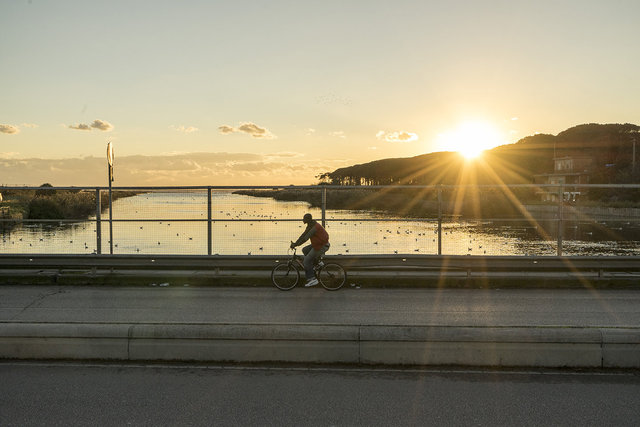
Foto 1
Castelvolturno. Uno scorcio della Domiziana, una strada che taglia di netto il territorio di Castelvolturno attraversata dalla foce del fiume Volturno.
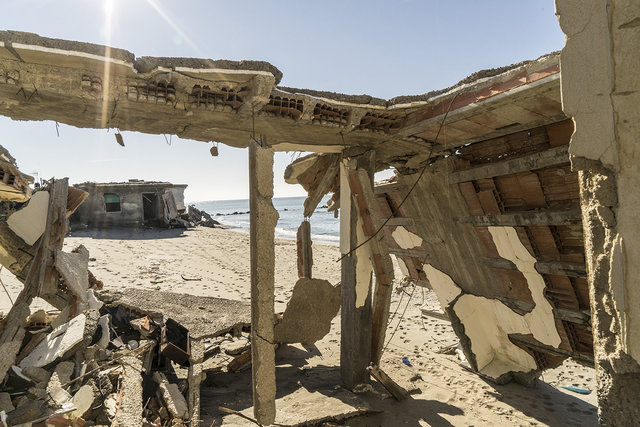
Foto 7
La spiaggia della Bagnara, ormai inagibile per le costruzioni abusive di case che oggi sono arrivate in riva al mare.
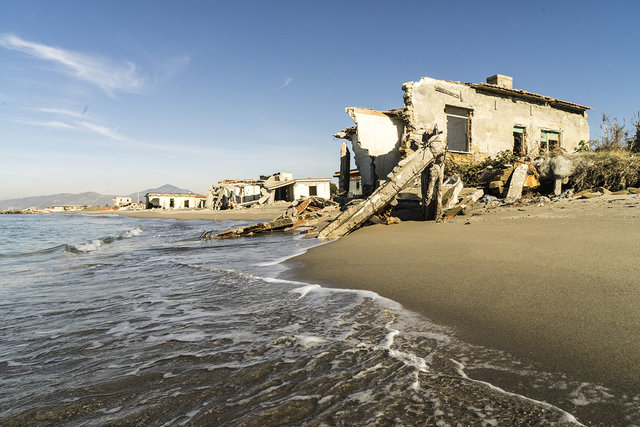
Foto 8
La spiaggia della Bagnara, ormai inagibile per le costruzioni abusive di case che oggi sono arrivate in riva al mare.
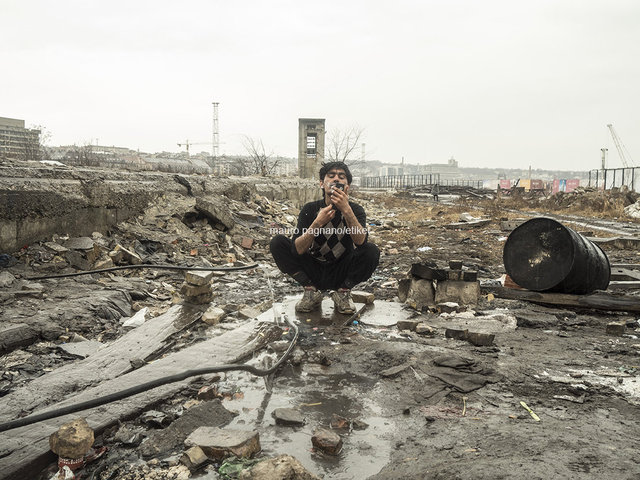
A refugee trying to shave in the disused spaces of Belhgrado station where are living with about 1,000 people in extreme conditions. Although the conditions in which they are forced to live, these people try to live normally their days.
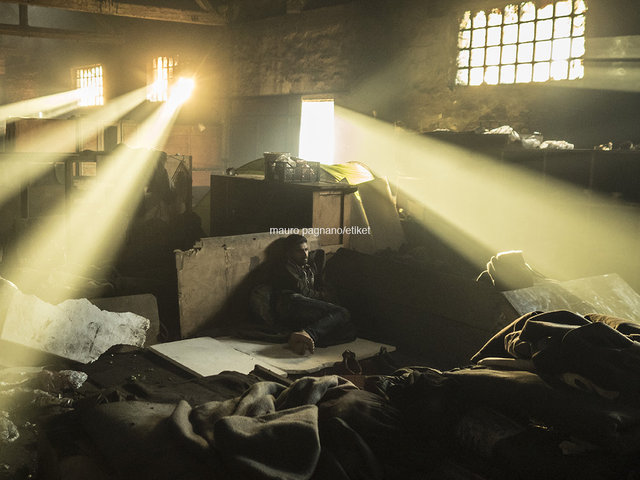
The internal of disused warehouses behind the station in Belgrade where about 1000 refugees waiting to cross in the Hungarian border and arriving in the EU. About 1,000 refugees, mostly Afghans and Pakistanis who are trying to reach Europe, are locked for months in an irregular field behind the railway station in Belgrade. Their journey along the Balkan route has stopped for the moment, at the border between Serbia and Hungary, because of the closing of the border by the Hungarian government. Among these people, many are minors and they live in some disused warehouses in conditions devoid of human dignity. There are toilets, even chemicals, they are forced to breathe toxic smoke to warm up and cook and they receive one hot meal a day with the help of an NGO. In the meantime, many of them, even today, try to cross the border braving the presence of the hard Hungarian police with his dogs, hoping for a better life in the countries of the United Europe.
